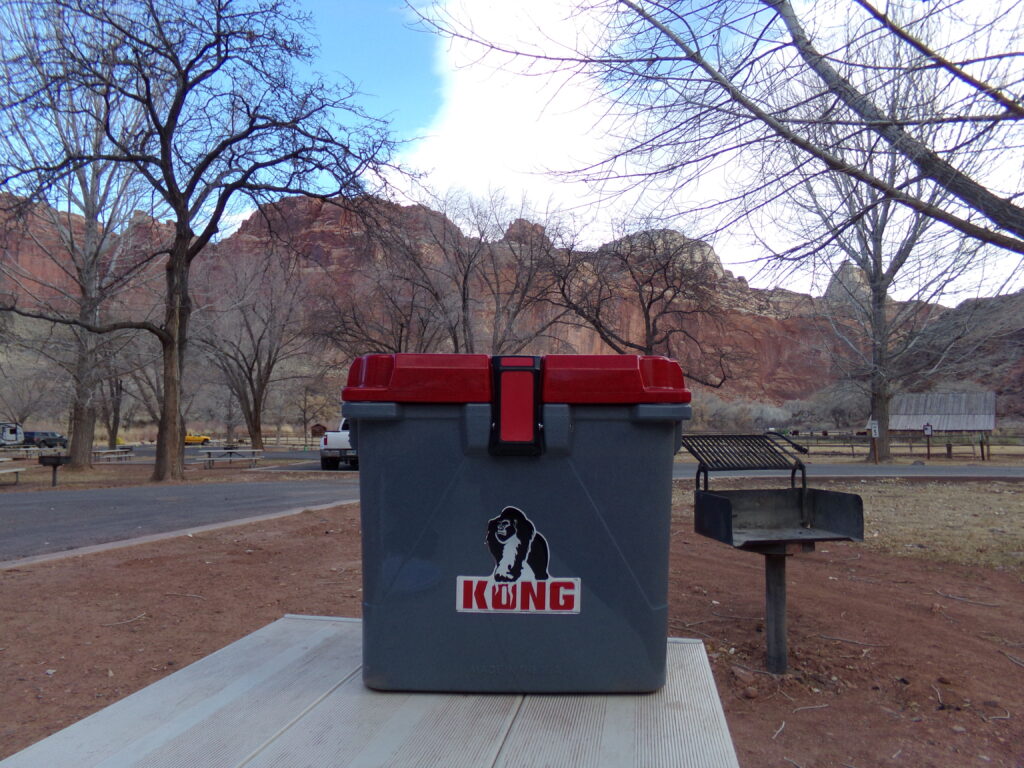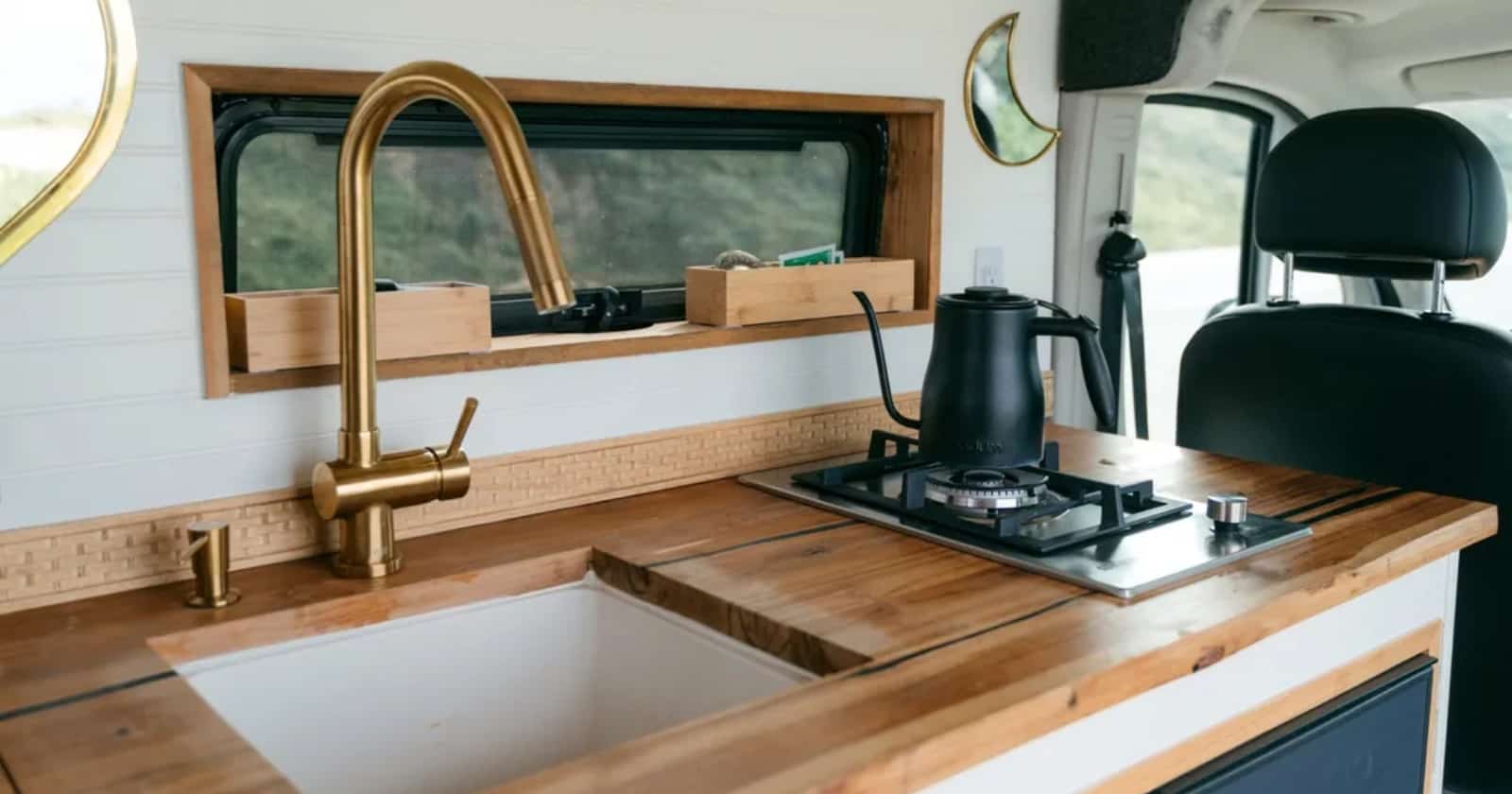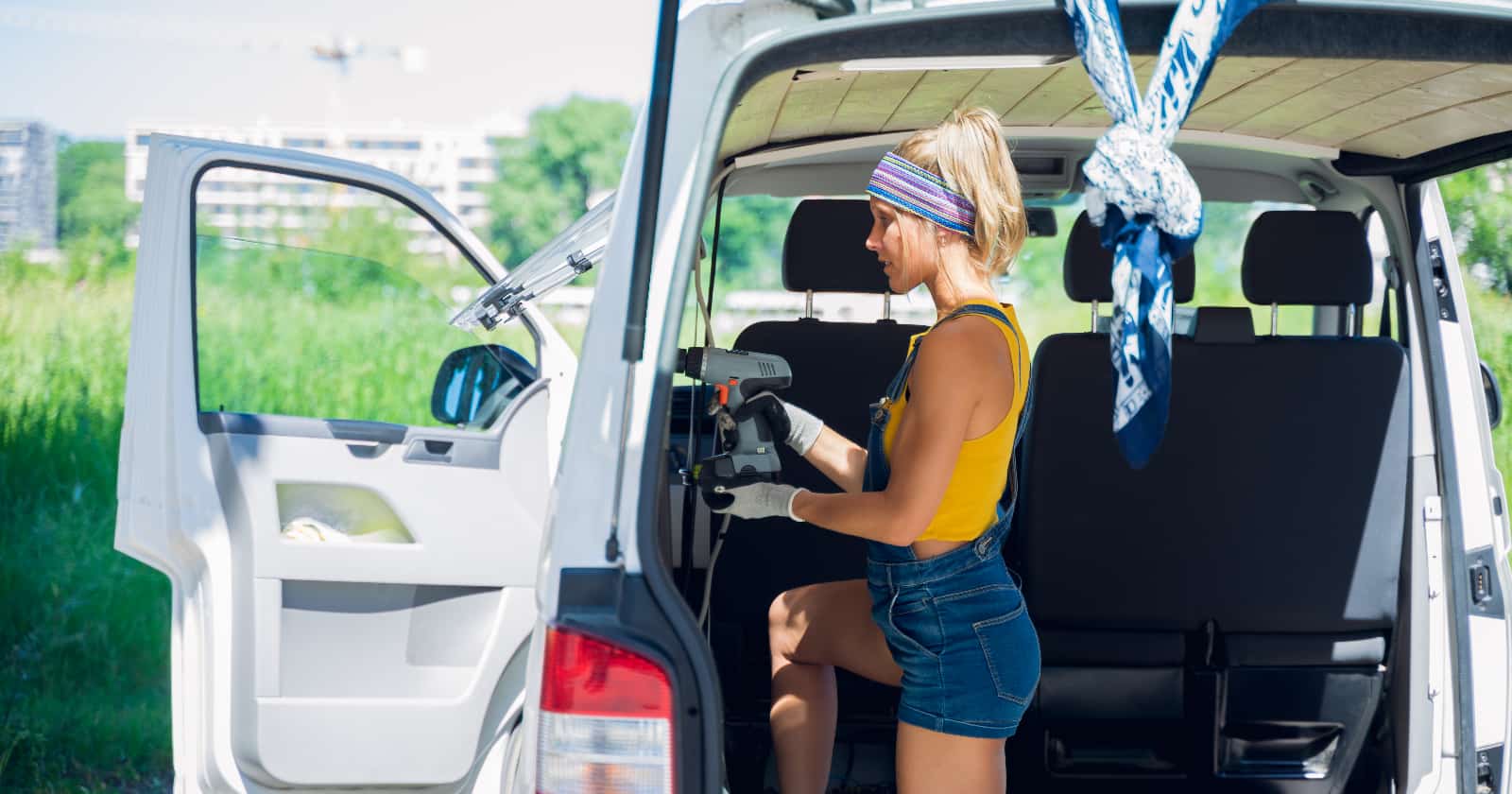Camper vans are the ideal choice for many people as they don’t require towing and they’re easier to drive and park than larger Class C and Class A motorhomes. However, there is a trade-off when it comes to having such a small living space. There is less room to cook, and a lot less room to store your food and drinks.
We converted our 2016 Chrysler Town & Country minivan into a simple, minimalistic camper with even less space than your traditional Sprinter van or typical Class B RV. Having such little room meant we had to get creative when it came to packing our groceries.
1. Focus on non-perishables
As with our minivan, many camper vans do not have room for big portable fridges and freezers. Not to mention, portable fridges will require power in order to keep your food cold. Non-perishables are easier to store while dry camping and many items do not even need to be cooked to be enjoyed.
We utilized a regular cooler for our mobile pantry and a smaller, better-insulated KONG cooler with ice for the few perishables such as eggs or veggie burgers. Our pantry items included soups, granola, nuts, instant coffee, tea, bread, beans, tortillas, pasta, peanut butter, pretzels, potatoes, bananas, etc. We kept the pantry towards the front of the van where it was easier to access when we wanted a quick snack; the “mini fridge” was stored further back and only needed to be accessed at mealtime.

2. Get rid of the bulky food packaging
One of the common food storage tips you’ll hear from vanlifers is to get rid of all the bulky food packaging. It often takes up much more space than needed.
If possible, take the items out of their original packaging before storing them in your fridge/cooler. Throw them in Ziploc bags and label items along with their expiration dates or preparation information so you won’t forget.
Eggs are a staple camping breakfast, but storing them in the carton may result in a few broken shells by the time you get to cooking. Consider cracking your eggs ahead of time into a recycled coffee creamer container. This also makes it faster and easier to cook them at the campground in the morning.
If you don’t want to do the meal prep ahead of time, you may at least want to consider a travel container to protect your eggs from breaking while in transit. These are more durable and compact than the traditional egg cartons from the store, and they’re less than $2 on Amazon!
3. Stock up as you go
When there is limited storage room, you may want to consider just packing a few days’ worth of food at a time and stock up as needed at grocery stores along your route or near your campground. You can easily find grocery stores and supermarkets near you as well as other points of interest while planning your trip with RV LIFE Trip Wizard. This will not only help save space in your van but also ensure that your food is as fresh as possible.
For more food storage tips, check out the video below:
Continue reading: How Do You Figure Out Your Van Layout?



